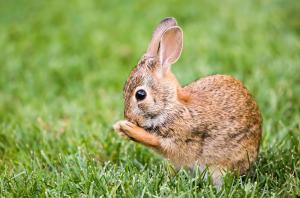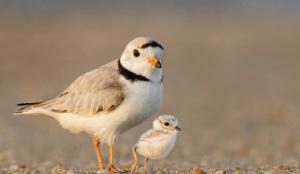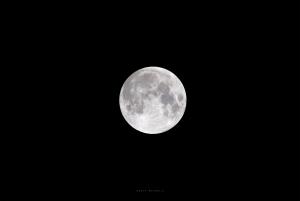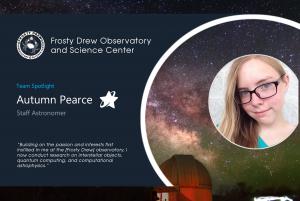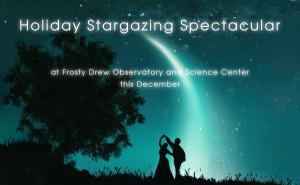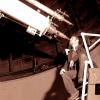Celebration of Space - November 23, 2023
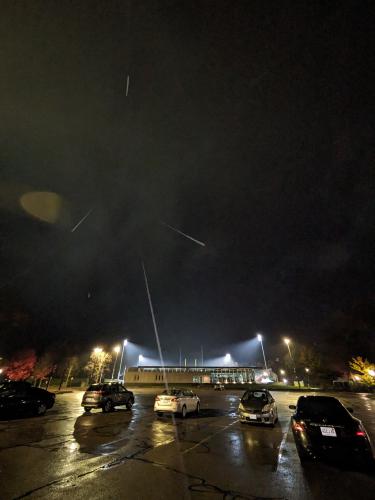
Bryant University Football Field with cutting edge dark sky compliant lighting. Look at the glow in the sky.
Over the past several months we have been writing about new potential developments in Ninigret Park, which is home to Frosty Drew Observatory and Science Center. The leadership in town that are supporting these developments, highly favor lighting Ninigret Park, therefore removing Ninigret Park from the very distinguished role of darkest spot in Southern New England, and most accessible spot to see the Milky Way in New England. At Frosty Drew it baffles us that anyone would want to replace a truly rare, in demand, natural resource – the fabulous view of thousands of stars and the Milky Way, with the same thing that nearly every other town/city in the region has – lighted parking and lighted roadways.
We’ve been told that “lights in Ninigret Park would not affect Frosty Drew Observatory because they will be dark sky compliant”. Those who are making this statement have not consulted with Frosty Drew regarding our operations and how lights would affect them. Dark sky compliant lighting is something that should be installed in a community around a dark sky resource, idealistically, everywhere on the planet that absolutely requires lighting. It is not what one would install AT the dark sky resource, as it will inhibit views of the night sky.
But it is not just about humans. I can’t state this enough! It appears that many humans still operate under the erroneous belief that every other species on Earth needs to take the back seat to our wants and desires. Being that humanity is capable of destroying a natural habitat, it is our responsibility to ensure that we do not! Of all the species on Earth, homo sapiens are the only one that seems to think we need lights at night. If lights were so important to our survival, how did life survive for the past 4.8 billion years, nearly all of which time did not have light at night. In fact, light at night is unhealthy for the habitat, and for humans. This is because we have evolved to a rhythm of day and night. The less darkness we experience, the more depressed we become. But what about nocturnal species?
Imagine if a species on Earth tried to block the daytime sky, creating darkness all the time on Earth. How do you think humans would react? 70% of mammals are nocturnal. The nighttime is their habitat! This is a delicate balance that is a product of billions of years of evolution. I would consider the notion that humans need to light the night to be remarkably, and erroneously, pretentious. For those who have visited Frosty Drew, and for the thousands of people that visit Ninigret Park per year at night, have surely experienced the fabulous number of nocturnal species that call this area home. Whether in the Ninigret National Wildlife Refuge (which abuts the park), or in Ninigret Park itself, the sounds of the night are amazing. Additionally, the sights of the night are amazing as well, and not just the sky! How many people experience owls on a daily basis? At Frosty Drew we do. Even the Eastern whip-poor-wills, which sound out all night long during the late winter—summer. They may frustrate some of the Frosty Drew astronomers with their endless calls in the night, but it is beautiful, and they are now classified as “near threatened” due to decline of the species resulting from human activities.
Lights in Ninigret Park are unnecessary, unacceptable, and outright irresponsible. They would be detrimental to all nocturnal species, both endangered and not, that call Ninigret Park and the Ninigret National Wildlife Refuge their home. They would also be detrimental to the future operations of the Frosty Drew Observatory and Science Center, as well as our mission to “Enlighten, discover, inspire- through education and research- knowledge about science, the night sky, and the universe”. If you have experienced the night at Frosty Drew and/or Ninigret Park, and it spoke to you, moved you, connected you to something bigger, or just brought a smile to your face, then take a stand for the night and write in to the Charlestown Parks and Recreation Commission regarding the prospects of installing any additional lighting in Ninigret Park. Letters can be emailed to: vhilton@charlestownri.gov.
On Monday, November 27, 2023 at 4:17 am, the November full Moon will occur. Commonly referred to as The Full Beaver Moon, this full Moon will be one of the highest full lunar phases of the year. This is because the Moon orbits Earth 5.1º inclined to the ecliptic, which is the path the Sun takes across the sky. Sometimes the Moon is above, below, or on the ecliptic. Additionally, the Winter Solstice will occur in mid December, which brings Earth’s maximum tilt away from the Sun in the Northern Hemisphere, which will place the ecliptic very low in the sky during midday, and very high in the sky at midnight. On November 27th, the Beaver Moon will pass 2.5º above the ecliptic, which will place the Moon at about 72º over the horizon at midnight for our region. The December full Moon on December 26th will be slightly higher at 76º over the horizon.
The Beaver Moon moniker comes down to the time of year that beavers begin to overwinter in their homes. Trappers in North America would commonly hunt beavers during this time of the year due to their thick winter coats. Alternate names for the November full Moon are the Full Digging Moon, Full Deer Rutting Moon, and Full Freezing Moon. In 2023 the November Moon will be the last full Moon of autumn. So take a moment on Monday night to step outside and welcome the Full Beaver Moon of November as the holiday season presses upon you.
This coming Tuesday, November 28, 2023 is Giving Tuesday, which is an important day for non-profit organizations like Frosty Drew. At Frosty Drew we believe that we can introduce children, and young adults to the possibility and potential of a career in astrophysical sciences or the larger STEM category. The first humans to visit Mars are walking around on Earth right now. They do not know it is them, and they are currently children. We want to know these people! This past month we spotlighted at Frosty Drew Astronomy Team member that truly embodies our mission:
Autumn Pearce first visited Frosty Drew Observatory when she was 13 years old. That year, she visited Frosty Drew nearly every week with her grandmother. She had big questions about astronomy and astrophysics, and would follow around our astronomers and listen in to questions and discussions that other visitors would engage in. After a while we stopped seeing her out at the Observatory. Then in 2021, a young lady showed up one night with her telescope, and I recognized her. When I walked up to her she said “Hi, I’m Autumn. Do you remember me?”
Autumn is now an astrophysics and computer science joint degree student at Yale University. She conducts research on interstellar objects, quantum computing, and computational astrophysics. She joined the Frosty Drew Astronomy Team in 2021 as a Staff Astronomer, and we are better because of her. Please take a moment to read Autumn’s story.
The support of our readers, visitors, and community have made moments like these possible. These are the moments that make us smile. This is our mission at work! We often hear from individuals that were introduced to astronomy at Frosty Drew as children, who are now adults working in astrophysical science careers. When evaluating your donations for Giving Tuesday in 2023, please consider Frosty Drew Observatory and Science Center. Your support means the world to us, and we love our gig because of you! Please Donate.
Save the Date:
Friday, December 15, 2023
Holiday Stargazing Spectacular
This is a night to get out under the stars and celebrate the winter holiday. At Frosty Drew, the Winter Solstice brings in so much joy. It is the longest night of the year, which is a playground for astronomers. On the 15th, the Frosty Drew campus will be buzzing with holiday revelries. We’ll have a special airing in the Sky Theatre, décor, and tasty treats. Of course the cosmos are on the list for the night, and our telescopes will be pointed to the December sky. Tickets and information are available here
- Author:
- Scott MacNeill
- Entry Date:
- Nov 24, 2023
- Published Under:
- Scott MacNeill's Columns

